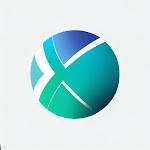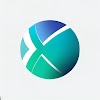Why Choose Python for Beginners?
Python is an excellent programming language for beginners due to its simplicity, readability, and versatility. It has gained immense popularity in the programming community, making it a valuable skill to learn for various purposes, including web development, data analysis, artificial intelligence, and more.
Setting Up Your Development Environment
Before diving into Python programming, you need to set up your development environment. Follow these steps to ensure a smooth start:
Step 1: Installing Python
Visit the official Python website and download the latest version of Python for your operating system. The installation process is straightforward and well-documented.
Step 2: Choosing a Text Editor or IDE
Python code can be written using any text editor, but using an Integrated Development Environment (IDE) provides a more productive experience. Some popular choices include Visual Studio Code, PyCharm, and Jupyter Notebook.
Your First Python Program
Let's write your first Python program to get a taste of the language's simplicity. We'll start with the classic "Hello, World!" program:
print("Hello, World!")
Save this code in a .py file and run it using the command python filename.py. You should see the output "Hello, World!" displayed in your terminal.
Understanding Python Basics
Python's syntax is designed to be readable and straightforward. Here are some essential concepts you'll need to understand:
Variables and Data Types
In Python, you don't need to declare the data type of a variable explicitly. The interpreter automatically determines the data type based on the value assigned to the variable. Common data types include integers, floats, strings, and booleans.
Control Flow
Python offers various control flow structures like if statements, loops, and more. These allow you to control the flow of your program's execution based on conditions.
Functions
Functions are blocks of reusable code that perform a specific task. They help you modularize your code and make it more organized.
Working with Python Libraries
Python's extensive libraries make it a powerful language for various tasks. Here are some essential libraries for beginners:
NumPy
NumPy is used for numerical operations and array manipulation. It's a fundamental library for data science and scientific computing.
Pandas
Pandas is perfect for data manipulation and analysis. It provides data structures and functions needed to work with structured data seamlessly.
Matplotlib
Matplotlib is a popular library for creating visualizations and graphs. It's essential for conveying data insights effectively.
Resources for Learning Python
As a beginner, you have numerous resources at your disposal to learn Python effectively:
Online Tutorials
Websites like Codecademy, Coursera, and Khan Academy offer interactive Python tutorials that guide you step by step.
Documentation
Python's official documentation is comprehensive and user-friendly. It's an excellent reference for learning about different functions and libraries.
Community and Forums
Join online forums like Stack Overflow and Reddit to ask questions, share your progress, and learn from experienced programmers.
Recommended Book: "Python Crash Course"
For a comprehensive and hands-on approach to learning Python, we recommend the book "Python Crash Course." This highly popular book has been hailed as one of the best resources for self-learners. It covers a wide range of topics, from the basics to more advanced concepts, in a clear and engaging manner. You can find "Python Crash Course" available for purchase here.
Congratulations on completing our beginner's guide to Python programming! You've gained a solid understanding of Python's basics, set up your development environment, and explored essential libraries. Remember, programming is a journey that requires practice and patience. Keep coding, experimenting, and building projects to enhance your skills further.






0 Comments